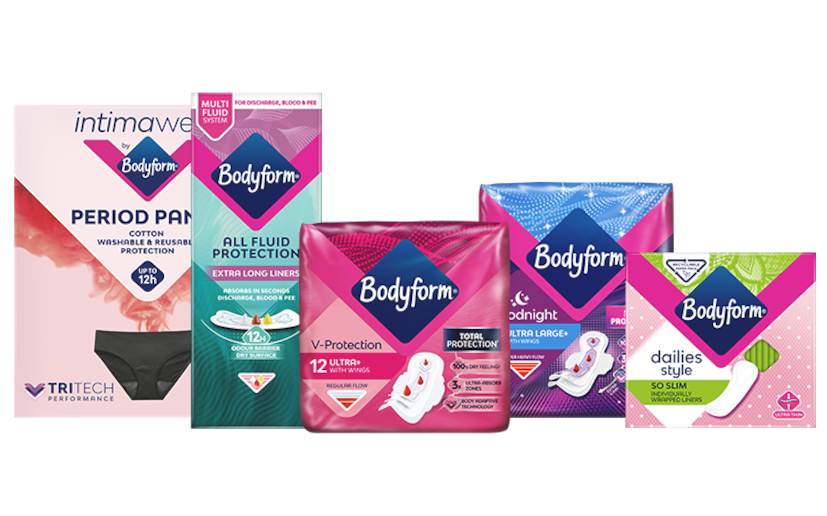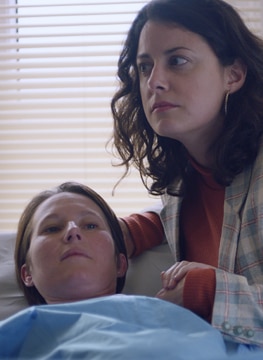
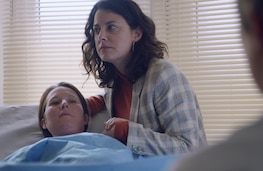
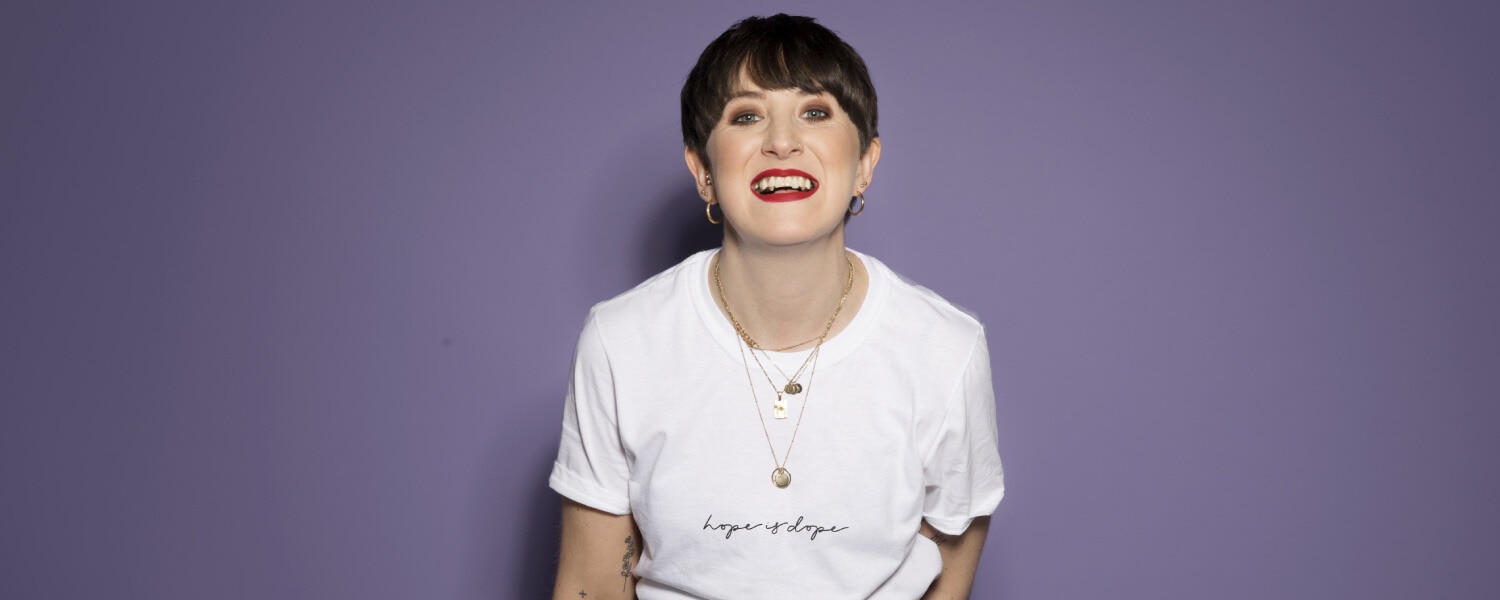
Bodyform is campaigning to stop the silence around women’s health and intimate issues. Our #wombstories need to be heard.
To continue breaking taboos by sharing stories and experiences, we spoke to Lauren Mahon, BBC Broadcaster and Founder of GIRLvsCANCER about her womb story.
From struggles with undiagnosed endometriosis during her late teens and twenties, to being diagnosed with stage 3 breast cancer and being put into medical menopause in her thirties; “my womb story isn’t linear in the least. And is essentially a game of two decades,” says Lauren.
Read on to find out more about Lauren’s story…
“During my late teens and early twenties, I would experience excruciating pains around the time of my period. Eventually it got to the point that the pain would happen during sex and sometimes even when going for number twos. Sexy I know. It was at this point that I’d started taking myself to walk-in clinics when I’d have an ‘episode’ and being laid down with legs up in stirrups became a monthly occurrence. It was only when I was referred to a gynaecologist, five years later, that I began to get some answers. An internal ultrasound revealed a large endometriotic cyst in my ovary. BINGO.”
“During a laparoscopy to remove said cyst, the surgeon found endometriosis so severe the cells had fused my bladder to my uterus and were covering most of my organs. By the time I’d healed from the procedure I’d endured bouts of crippling health anxiety that so often comes hand in hand with an undiagnosed condition. My endo is under control for now, but it bears scars deeper than the two little marks on my pelvis for sure.”
“At 31 I was diagnosed with stage three breast cancer and my world as I knew it fell apart. Within ten minutes of telling me the earth-shattering diagnosis, I was asked if I had plans to have children. Bit personal but as someone who hadn’t had a text back in months, I didn’t think this was something I needed to be worrying about at this very moment. Turns out I was going to be put into medical menopause and likely be made eternally infertile. Fuming.”
“I chose to go ahead and have my eggs frozen to ensure that if future Lauren wanted rugrats she’d be able to. And if I didn’t? Well then egg donation feels like an awesome thing to be able to do. By the time I’d finished my active treatments of chemo, radiotherapy and surgery I wasn’t worried about going through the menopause.”
Nobody talks about the menopause - about the way it has the capacity to morph you into a different person.
From the physical things such as; embarrassingly intense hot flushes that have you set aflame to. Menopause makes you wear manmade fibres, and the idea of not carrying a water and/or fan becomes unfathomable. It puts paid to freely enjoying a glass of fizz or cup of coffee for fear it’ll involve an internal equivalent to a volcanic eruption. I’d genuinely dread public transport or busy places as the flushes were so severe, I’d often feel dizzy. Not mention turn into a plum tomato. Or over a year of sleepless nights waking up sodden from head to mattress. Nobody talks about the vaginal dryness that is more an overwhelming un-comfortability which coupled with your libido packing its bags and heading for the hills, leaves you feeling less than desirable. Nobody talks about the issues with bone density and what was once a stubbed toe is now a broken one. But most of all nobody talks about the low mood.”
“Myself and my oncology team discussed at great length the balance between risk vs quality of life and I finally made the decision last year to lose the injection and stay on the tablet, to alleviate the crippling chaos that were my menopausal side effects.”
“I’m still in menopause. Still sans period. Still get a little warm at times. But at least now I feel stirring, when a Paul Mescal lookalike saunters by.”
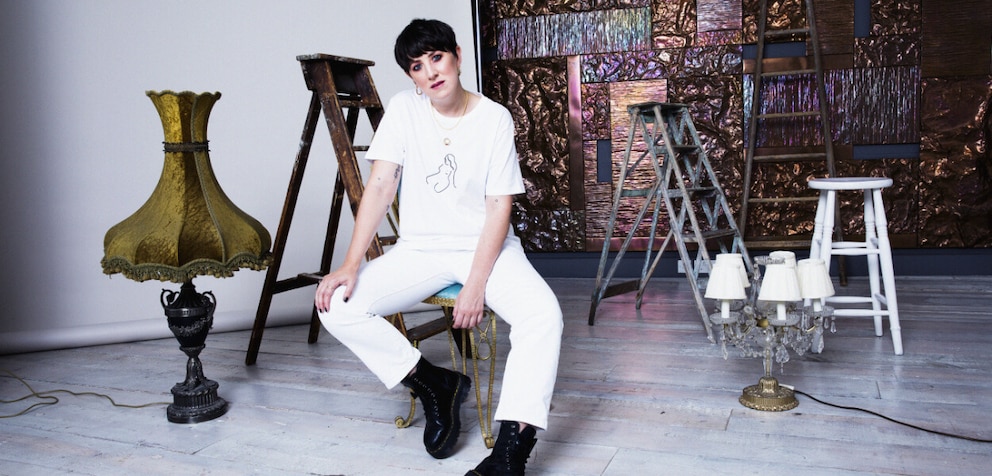
“It’s always been tempestuous to some respect as I’ve always felt like my “woman” parts didn’t like me very much. I’d longed to be ‘normal’ in that I could cope with what my body was throwing at me. In my endo days, I was relieved that I was diagnosed and no longer in pain, but I blamed my body for the relationship breakdown and felt robbed of so much in that time.”
“Menopause was the biggest test of mental strength as I’d endured so much in cancer treatment. Now the symptoms have lifted, I’m learning to accept my body as it is now. I don’t have periods but there’s defo a cyclical element to me that I’m tracking and leaning into.”
Even though I may never be able to have my own children, I still very much feel in my power as a womxn*. There is so much shame and stigma around womxn’s bodies and I’ve had to do a lot of unpacking and unlearning to realise that my body is beautiful and perfect. Even if it’s not ‘normal’ by society’s terms.
“I’m very much a heart on sleeve kind of girl and am open by nature. Since my diagnosis and since I’ve begun working in activism spaces, my trauma forms the subject matter in most of the work I do. This can obviously be quite triggering, and I have had to learn to be very careful to take care of my mental state to balance that.”
“Sharing my story feels important to me as I know the struggles I faced, although the world is different now, we still have a huge way to go in challenging archaic patriarchal constructs and normalising womxn’s health issues.”
“For sure it’s been massively cathartic - it’s a mode of healing. I’ve seen from creating GIRLvsCANCER that the sense of community, finding people, like you, that get ‘it’ is paramount. There’s strength in numbers and the more we share and shout the quicker we shift perceptions, tackle taboos and can in a very real way help people who are suffering in silence."
“Though my experience is one of a white cis hetero female in a Western world, this isn’t the only face of womxn’s health that is valid. Stories of womxn who are facing completely different experiences need to be amplified whether that’s race, gender, political or economic - womxn’s health is affected and we should be fighting and shouting about all experiences not just what we are used to seeing. It’s not representative in the slightest.”
* The term Womxn is an alternative way to spell woman that is purposely inclusive of transgender, non-binary and non-white women. It is used by some feminists, especially in the intersectional feminist movement, to avoid the spelling of woman that contains and derives from men.
